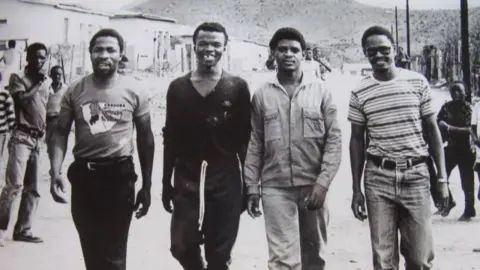The Blessed Waters of the Nile Ritual in Nubian Culture
Edited By : Wissal Hajjout
On the banks of the Nile, where history intersects with geography, Nubian life continues in northern Sudan and southern Egypt, carrying with it a heritage that spans thousands of years. The language, songs, and stories passed down by the Nubians form a living archive that reflects their deep connection to the river, which they see as a source of life and a pillar of identity.
One of the most prominent manifestations of this connection is what is known as “blessed Nile water,” which some people keep for use on specific occasions, based on traditional practices. During Newborn Week, for example, the baby’s hands and face are washed or sprinkled with a few drops of this water in a symbolic ritual aimed at bringing blessings and protection to the newborn. In traditional weddings, the bride and groom may go to the river to bathe or pour a little of its water on themselves, signifying a new beginning associated with the fertility of the land and the continuity of life.
These rituals are not limited to happy occasions, as the blessed waters of the Nile are also used in some folk practices, such as offering simple sacrifices to the river or using them for traditional healing purposes, from washing the sick to sprinkling houses to ask for peace. There are also references in folk tales to the “people of the river”, mythical creatures believed to guard the watercourse.
These customs have undergone significant changes in recent decades, especially after the construction of the High Dam, which changed the landscape of the region and led to the displacement of many Nubian communities. Some rituals have disappeared or been reworked to suit the new reality, while others remain present in the collective memory and in cultural initiatives that document this heritage.
The story of the blessed waters of the Nile is a model of the relationship between African communities and their natural resources, where an essential element such as water becomes a cultural and spiritual symbol, bringing together the past and the present in a single framework. While circumstances change, the river remains present in the consciousness of the Nubians, a witness to the continuity of the link between humans and their environment.
-

UN Sounds Alarm Over “Extremely Worrying” Human Rights Crisis in Haiti Amid Escalating Gang Violence
Edited By: Africa Eye The United Nations has expressed grave concern over the deteriorating human rights situation in Haiti, describing it... Human Rights -

Africa: AI Seeds the Future of Health, Farming & Local Business
Edited By: Fatimatou babdinAcross the continent, artificial intelligence is quietly transforming key sectors from healthcare and agriculture to the very... Africa -

Caribbean Turns to Africa for Trade Stability Amid Western Economic Uncertainty
Edited By: Tendai Zola The Caribbean region is increasingly turning toward Africa to diversify its trade relationships and reduce dependence on... Economy -

Ghana Mourns Highlife Legend Daddy Lumba, President Mahama Promises State Funeral
Edited By: Aminata Diallo Ghana is in mourning following the death of iconic highlife musician Daddy Lumba, who passed away on... Culture -

Nigeria power past Zambia to secure Wafcon semi-final place
Edited by: Fatima Babadin Nigeria advanced to the semi-finals of the 2024 Women’s Africa Cup of Nations in Casablanca after sweeping... Sports -

UNESCO Adds 26 New Sites to World Heritage List
Edited By: Tendai Zola UNESCO has officially added 26 new locations to its World Heritage List, recognizing their outstanding universal value.... Culture

 Follow the latest news on WhatsApp
Follow the latest news on WhatsApp  Follow the latest news on Telegram
Follow the latest news on Telegram  Follow the latest news on Google News
Follow the latest news on Google News  Follow the latest news on Nabd
Follow the latest news on Nabd 


















